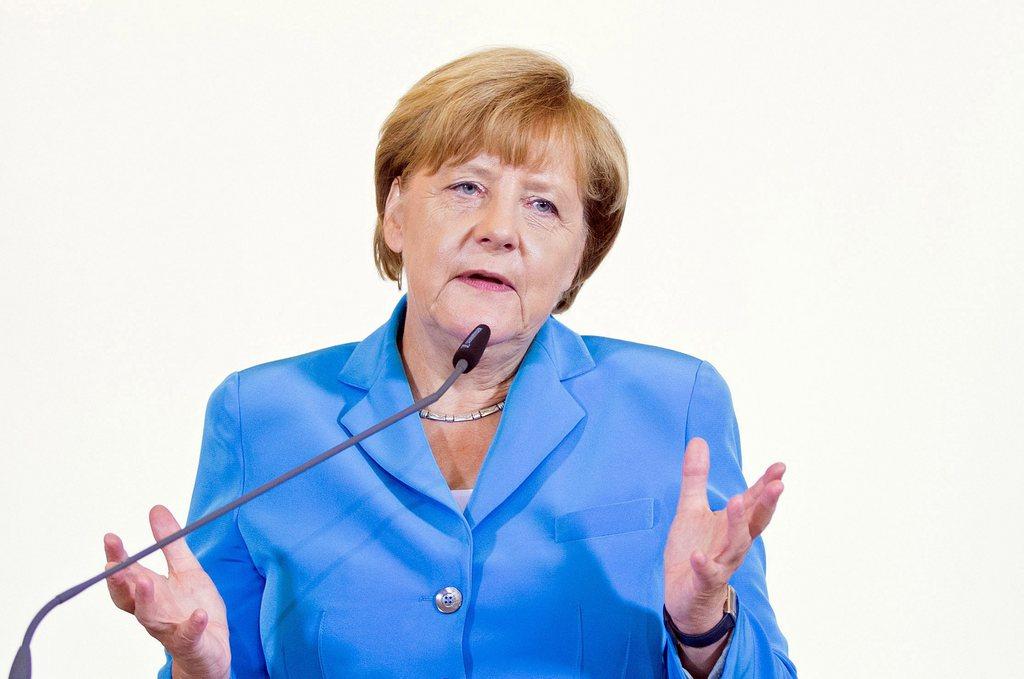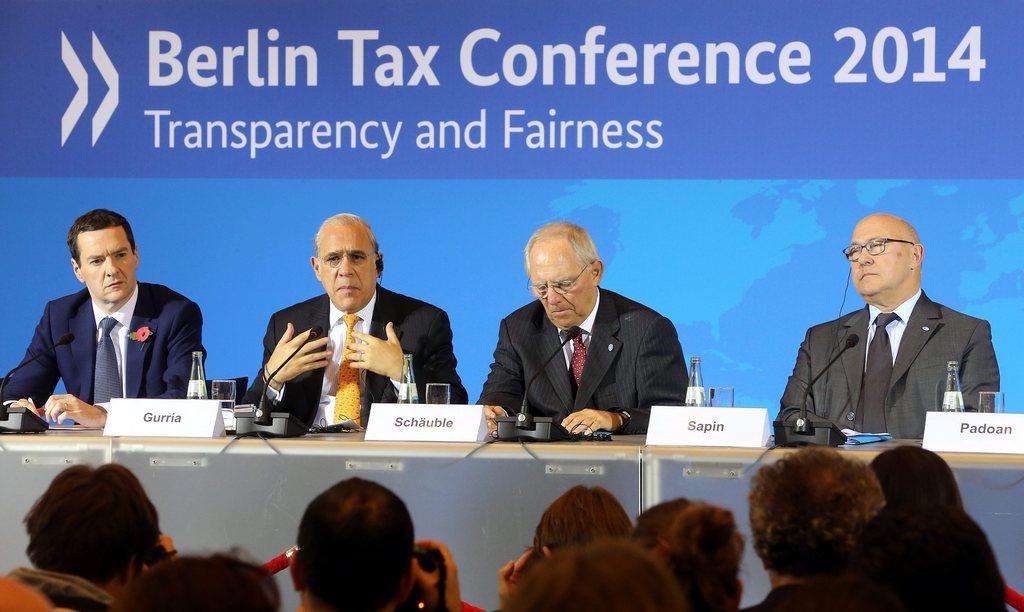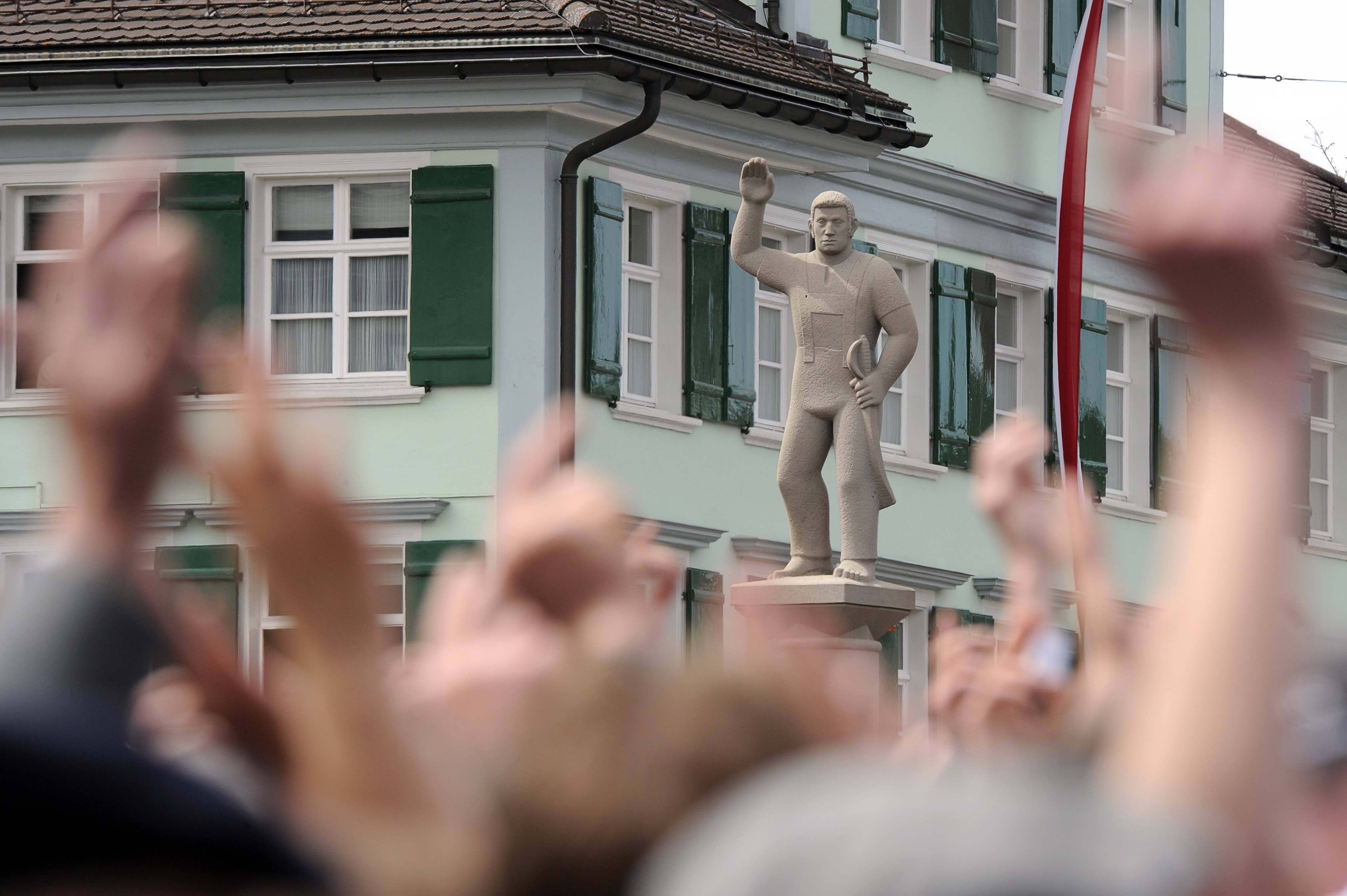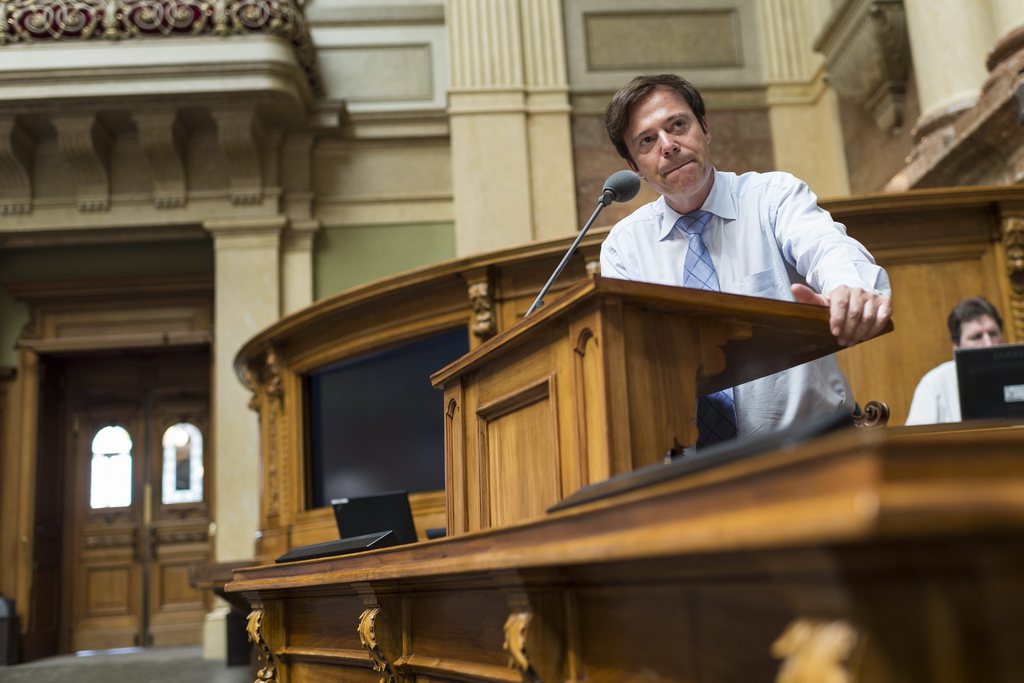Swiss hope for Merkel mediation in EU negotiations

German Chancellor Angela Merkel is making her first visit to Bern in seven years. The Swiss are hoping she will use the occasion to mediate in ongoing talks with the European Union.
Merkel will be receiving an honorary doctorate from the University of Bern during her flying visit on Thursday. With only a few hours allotted for political consultations, it is very likely that discussions on important political issues will only scratch the surface. Is this an indication that the chancellor is not taking Germany’s small southern neighbour seriously enough?
“I don’t think so,” says Thomas Dörflinger, chairman of the German-Swiss parliamentary group of the German parliament. “There are simply more important issues on the political agenda at the moment.”
The Christian Democratic Union party’s representative from Southern Baden understands bilateral relations between the two countries pretty well.
Immigration quotas initiative
Nevertheless, there are still some burning issues that need to be discussed between Germany and Switzerland. The February 2014 immigration quota initiative, which has become a huge bone of contention between Switzerland and the European Union, will probably be high on the consultation agenda between Merkel and Swiss President Simonetta Sommaruga.
Ever since a narrow majority of the Swiss population voted in favour of curbing immigration, the atmosphere between Bern and Brussels has been rather strained. The EU Commission has repeatedly emphasised that implementing such an initiative would be incompatible with the bilateral treaties between Switzerland and the EU.
For this reason, parliamentarians in Bern are desperately looking for a solution to the dilemma of serving the will of the people on one hand and avoiding a break with the EU on the other. Achieving this seems like squaring the circle and so far no solution has been found. Even the German foreign minister, Frank Walter Steinmeier, was unable to kindle hope among his Swiss during his visit in Bern in mid-August.
There is some optimism that the powerful Angela Merkel will get involved and settle the dispute. After all, she was the one who had warned the EU against imposing premature sanctions in the wake of the referendum, and urged it not to drive a wedge between the good German-Swiss relationship.
Little room to manoeuvre
“I don’t think she is going to make any concessions, and there are no apparent signs that she will,” says Dörflinger. “The Commission has not changed its position and so far Brussels has yet to show any willingness to discuss this.”
The safeguard clause for the anti-immigration law, which is being discussed in Bern and which would allow a certain quota of immigrants per year, is not going to help much. In Dörflinger’s opinion, the European Commission definitely wants to avoid giving the impression that it is accommodating Switzerland. After all, it has proved to be pretty uncompromising even towards EU countries, such as the UK and Croatia.
“There are no political discounts,” says Dörflinger. “I understand the Commission’s position of not making concessions to Switzerland as a non-EU member state. If it did, it would lose its credibility.”
The expectations around the German chancellor’s visit are actually more to do with her personal approach to the issue. The Swiss much prefer her quiet and thoughtful manner to the loud and menacing appearance of former German finance minister, Peer Steinbrück. By using martial metaphors and threats in the dispute around Swiss banking secrecy a few years ago, he managed to evoke a veritable crisis in the German-Swiss relationship and fuelled Swiss resentments against the dominant Germans. Merkel’s predecessor Gerhard Schröder also alienated many Swiss by appearing too self-assured.
Baby steps
Merkel has adopted a different approach and she regularly spends her cross-country skiing holidays in the Swiss Alps.
“Merkel only comes here to roam the Engadin with her cross-country skis,” Swiss national Mathieu von Rohr scoffed in the German magazine Der Spiegel a few years ago. And the Swiss daily Blick has previously accused the chancellor of not having an emotional connection to Switzerland, which it blamed on her East German background.
It remains to be seen whether her short visit will leave enough time to discuss issues other than the immigration quota initiative. The long-running debate about aircraft noise, for example, is still unresolved after the failure of the state treaty. In Germany’s border regions, the development of air traffic to and from Zurich’s Kloten airport is monitored round the clock.
“In my constituency this is still a big issue,” confirms Dörflinger from southern Baden, where people have been campaigning against the large number of airplanes flying to Switzerland’s biggest airport over German territory. “We haven’t really made any progress in solving these factual issues.”
But every cloud has a silver lining. Switzerland’s decision to abandon its banking secrecy by 2018 through the OECD declaration has been well received in Germany. At least one smouldering area of conflict has been resolved, but many remain.
The Free Trade Agreement (EFTA) between Switzerland and the EU was signed on June 21, 1999. This agreement allows EU citizens to live and work in Switzerland under certain conditions. In return, Swiss nationals enjoy the same rights within the EU. Within the EFTA framework, professional diplomas are recognised and social security systems coordinated. EFTA is one of seven agreements within the “B.1” bilateral treaty, which regulates air traffic, overland transport, trade in agricultural products, as well as technical and scientific cooperation.
The termination of one part of the treaty automatically affects all other agreements, which are terminated six months later. This means that as soon as Switzerland curbs the free movement of EU citizens, the EU can terminate the treaty with the agreement of all 28 member states. If the treaties are to be suspended, a qualified majority is sufficient.
It is not uncommon that German heads of state space their Swiss visits. Due to his long time in office, Helmut Kohl travelled to Switzerland most frequently. Between 1982 and 1998, he officially visited Bern in 1989 and 1993. However, the Swiss were able to welcome him to their country on a semi-official basis another ten times. After he left office, it took another ten years for the next German chancellor to visit Switzerland. Kohl’s successor Gerhard Schröder, only came to Bern once for a bilateral meeting in 2003. Angela Merkel visited in 2008. All German presidents have visited Switzerland with Joachim Gauck being the last one to visit Bern and Geneva in April 2014. Besides these visits, there are numerous annual high-level meetings.
Translated from German by Billi Bierling

In compliance with the JTI standards
More: SWI swissinfo.ch certified by the Journalism Trust Initiative











You can find an overview of ongoing debates with our journalists here . Please join us!
If you want to start a conversation about a topic raised in this article or want to report factual errors, email us at english@swissinfo.ch.